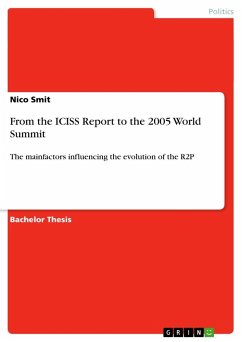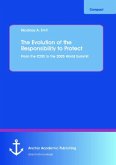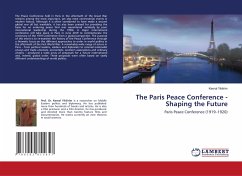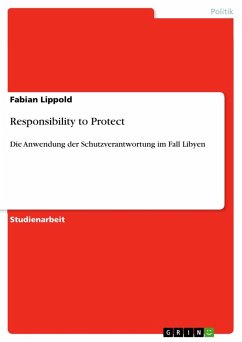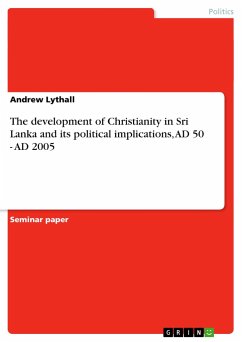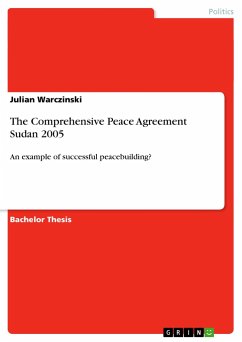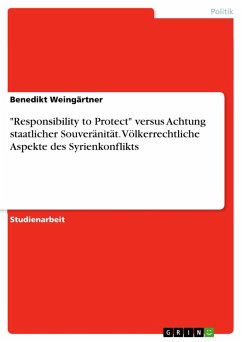Bachelor Thesis from the year 2010 in the subject Politics - Topic: International Organisations, grade: 70, University of Cape Town (Department of Political Science), course: International Relations, language: English, abstract: A large portion of the literature that deals with the evolution of the R2P focuses on the principle's progression from the ICISS report to the HLP report, the Secretary-General's report and ultimately the 2005 World Summit Outcome Document. This thesis provides a discussion of the main events and arguments that have influenced the debate around the R2P and the principle's evolution, namely, the war on terror and the 2003 war in Iraq, the crisis in Darfur, and lastly, U.N. Security Council buy-in regarding the ICISS articulated criteria to guide the use of military force in humanitarian intervention. The thesis is divided into three sections, the first providing a conceptual background to humanitarian intervention. The second part shifts the discussion to the ICISS and the R2P, and the final section focuses on the main factors that have influenced the principle's evolution. A central theme underlying the reason for the undertaking of this thesis is the claim that the international system is experiencing a change in the writers/authors of the rules of the system. The argument is built by using the abovementioned main factors influencing the R2P's evolution as evidence - the central assertion being that the war in Iraq has weakened the moral standing of the U.S. and the U.K., and has negatively impacted on the credibility of these states as norm carriers. This has not only diminished their ability to build consensus on and commitment to the R2P, but has also engendered widespread hostility and suspicion towards the principle. The result is an international endorsement of the R2P that is substantially different from its initial emergence in the ICISS report, which by many accounts lacks much of the substance which would have enabled a decisive response from the international society to situations where such action is needed most.

